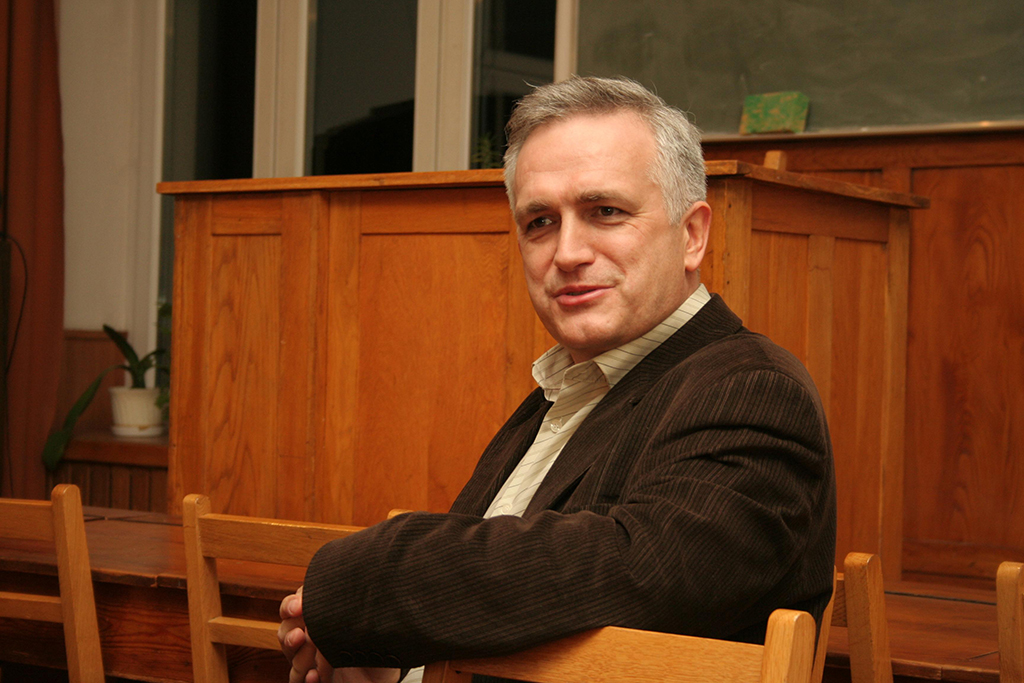POLONIA
Catholic intellectual Nosowski reflects on the elections of Sunday October 25, on “governability”, on the relationship between the people and democracy”

“The winner of Sunday’s election is known, but we still don’t know who will govern Poland”: Zbigniew Nosowski, Catholic intellectual, Director of the “Wiez” magazine and of the Centre, that since 1958 represents the most appraised centre for social-political and religious reflection in the Country, goes straight to the point when asked about the 25 October vote. Nosowski broached the maze of Polish political scene where two large parties contend leadership: Civic platform (PO, currently at the government), Rights and Justice (PiS, at the opposition). Several smaller parties are also running. “The outcome of the elections is a question mark, since PiS, odds-on favourite, could remain without partners to form a government coalition”, Nosowski said referring to surveys that ascribe a defeat to the current coalition formed by Civic Platform, until recently headed by the current president of the European Council Donald Tusk, and by the farmers and peasants party PsL, now considered out of parliament given its consensus below the 5% threshold. Do the eight parties and political groups that Sunday will compete for the electors’ votes represent Polish society? “I think that Polish politics is characterised by the same weaknesses of European politics: lacks of visions, few numbers of statesmen and of playing to the lowest common denominator. It’s also very distant from society as a whole. Polish democracy, although it was longed for and desired for a long time, is weak and many people decide not to avail themselves of their right to vote. While others don’t see a party they can identify with and choose what they believe to be the lesser evil. For the past ten years Polish politics is held in the grips of two parties born from Solidarnosc movement that with time grew into sworn enemies. Owing to a fierce opposition, these political groups experienced a tragically negative development. The party currently in the government, established as Liberal-Conservative, has become a group of technocrats that rule without ideals, while PiS, that started as a right-wing conservative party, has grown into a political group that makes an instrumental use of Catholic-nationalistic language”. What about those citizens who decide not to vote? To they correspond to a “third political force”? Many of them will stay away from the ballot boxes next Sunday… “Those who do not vote are in the wrong, this is the principle of democracy. The percentage of abstentions in Poland has remained fairly stable over time. It does not seem, however, that those people are a potential tool for change. It takes several generations to form democracy and make it strong. In Poland, over the past centuries, attachment to the nation was expressed through the protest against the state institutions that were thought to be structures imposed ‘from outside’, while the identity of the Poles was based on the language, the family and the Church. So the idea gradually took shape whereby rooted society is ‘we’, while the bodies of power are ‘they’. Especially during the communist period it was widely believed that the entire civil society was against institutional power”. The Church has been of the elements of national identity of the Polish people. What is her role today? “It can be said that the Church has not yet found a role in Polish diplomacy. The reason is that the myth of the 1980s, when it supported all independent initiatives, lives on. Still now two thirds of the Poles trust the Church, which is therefore a very important institution. The Churches in Poland empty at a much slower pace than in other countries, so a number of political groups make an instrumental use of certain Catholic rhetoric to gain consensus. Today PiS is seeking to present itself as a Catholic party and for this purpose it exploits the consensus of a part of the episcopate. But this is very dangerous, and I think that the bishops have realised it because during the present election campaign they referred in many ways to the Church’s independence. In Poland the Church is expected to take a strong stand on public issues but at the same time the possibility of a political role of the Church, in the form of support to one of the parties, is criticised”. PiS, the odds-on favourite party, is viewed as not pro-European. Does this understanding correspond to the truth? “In Poland, as in other post-Communist countries joined the EU, people are very happy of belonging to Europe, of travelling and working abroad. But most Poles consider the fact of being members of Europe as their own right… Moreover, many Poles are convinced that the majority of European countries don’t treat us as equals. So PiS constructed its electoral message on these sentiments. But I believe that if that party should sit in the government, political responsibility would bring about a sense of belonging to the European Union”.